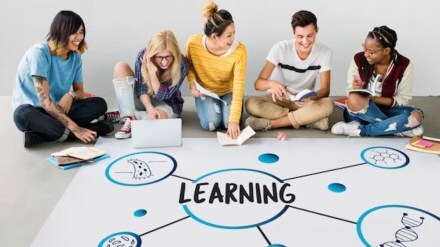By Reshmi Dastidar
Learning Expedition- a form of project-based learning has emerged as a dynamic educational approach that not only enriches students’ current learning experiences but also serves as a powerful catalyst for preparing them for the challenges of the future. Unlike traditional classroom settings, it offers a holistic and practical approach, fostering a range of skills and competencies that are increasingly vital in the rapidly evolving work- and life-scapes of the 21st century. At Gurugram-based Heritage Xperiential Learning School (HXLS), the implementation of expedition-based learning has demonstrated that this approach confers superior advantages that serve the learner well over a lifetime:
Critical Thinking and Problem-solving Skills
One of the primary ways in which learning expeditions prepare students for the future is by honing their critical thinking and problem-solving abilities. Through community-partnered projects, students are presented with real-world challenges that require creative solutions. This not only stimulates intellectual curiosity but also instils the confidence to approach complex problems with analytical acumen.
For instance, as part of a Grade 5 expedition I Am What I Eat, students studied decisions that people make about their diet and the factors that impact those decisions, to inquire into the bigger problems of diet-related illnesses in the community, and agriculture related pollution. They worked in a farm in the locality, with organic farmers for several weeks- preparing the soil, sowing, manuring, watering and finally harvesting a crop.
By organising meetings, fairs, and lectures, they brought together the school community and a group of organic farmers (in an initiative called CSNF, or Community Supported Natural Farming), to serve a two-fold purpose: city residents can have direct access to organically grown fresh produce, and farmers who are engaged in tending the Earth on behalf of the entire community, get the support and risk mitigation that they require. Students also conducted a food waste survey in their cafeteria. This initiative empowered them to promote awareness about reducing food waste and foster responsible consumption among their peers. Through hands-on activities, analysis, and reflection, students gained knowledge and motivation to reshape their eating habits and create a healthier, more sustainable future.
Collaboration and Teamwork
The future workplace demands collaboration and effective teamwork. Expeditions, often structured as group projects, provide students with opportunities to work collaboratively, communicate ideas, and share responsibilities. In doing so, students develop interpersonal skills that are essential in professional settings.
Each expedition at HXLS is structured so that students get the opportunity to work in teams in order, among others, to carry out research, surveys, or conduct investigations, do field work, to create high quality products and services that go beyond the school to address real challenges of their own community. By connecting classroom learning to the needs of the immediate society, teachers motivate students to think and work together in harmony, listen to differing opinions, respect them, and understand that collaboration is an essential aspect of life.
Self-directed Learning and Ownership of Education
Expeditions empower students to take ownership of their education. Unlike traditional methods where information is passively received, students actively seek knowledge relevant to their expeditions, a process that is facilitated by the teachers. This fosters a sense of curiosity and a love for learning that extends beyond the classroom.
Communication and Presentation Skills
In the future, effective communication will remain a cornerstone of success. Expeditions provide students with numerous opportunities to communicate their ideas, findings, and solutions to both peers and instructors. Whether through presentations, reports or multimedia creations, students refine their communication skills, learning to convey complex concepts in a clear and concise manner. These communication skills are transferable to various contexts, from academic settings to professional environments.
Interdisciplinary Learning
One of the primary strengths of expeditions lies in their ability to break down disciplinary silos, encouraging students to explore topics from multiple perspectives. Unlike conventional classroom settings, where subjects often exist in isolation, expeditions seamlessly integrate various disciplines. For instance, a science-focused expedition to a natural habitat might involve biology, ecology, geography, reading, writing, and even arts and crafts.
This interdisciplinary approach mirrors the interconnected nature of real-world challenges, preparing students for the complex, multifaceted problems they may encounter in their future endeavours. By engaging in hands-on, interdisciplinary learning experiences during expeditions, students develop a holistic understanding of concepts that transcend the boundaries of individual subjects.
Formative Assessment
Expeditions provide a unique platform for formative assessment, emphasising ongoing feedback and student growth rather than mere end-of-term evaluations. Teachers can observe students in action, assess their collaboration skills, problem-solving abilities, and adaptability to different environments. This real-time assessment allows for immediate adjustments to teaching strategies, ensuring that students receive timely guidance and support.
Moreover, the formative assessment in expeditions extends beyond traditional academic metrics. It encompasses the development of soft skills such as leadership, teamwork, and resilience—attributes that are increasingly recognised as crucial for success in the future. As students navigate challenges during expeditions, teachers can assess their adaptability, communication skills, and ability to collaborate, providing a comprehensive understanding of their readiness for the demands of the future.
In conclusion, expeditions serve as a dynamic and transformative educational approach that goes beyond the traditional confines of classroom learning. As we envision the challenges and opportunities that lie ahead, it becomes increasingly evident that expedition-based learning is not just a teaching method; it is a pathway to unlocking the full potential of students and preparing them for a future where innovation, collaboration and adaptability are the keys to success.
The author is head of middle programme at Heritage Xperiential Learning School. Views are personal.
